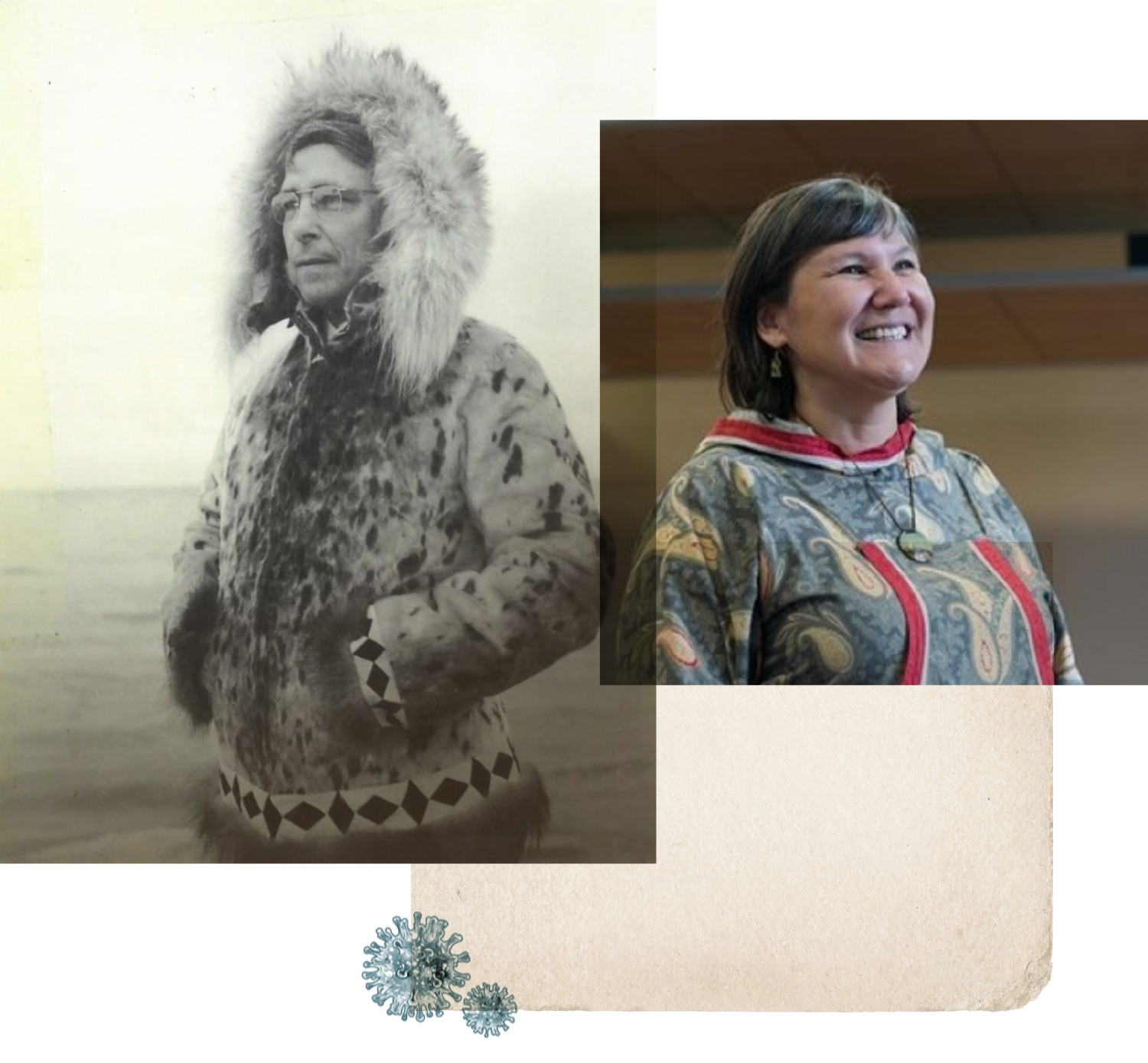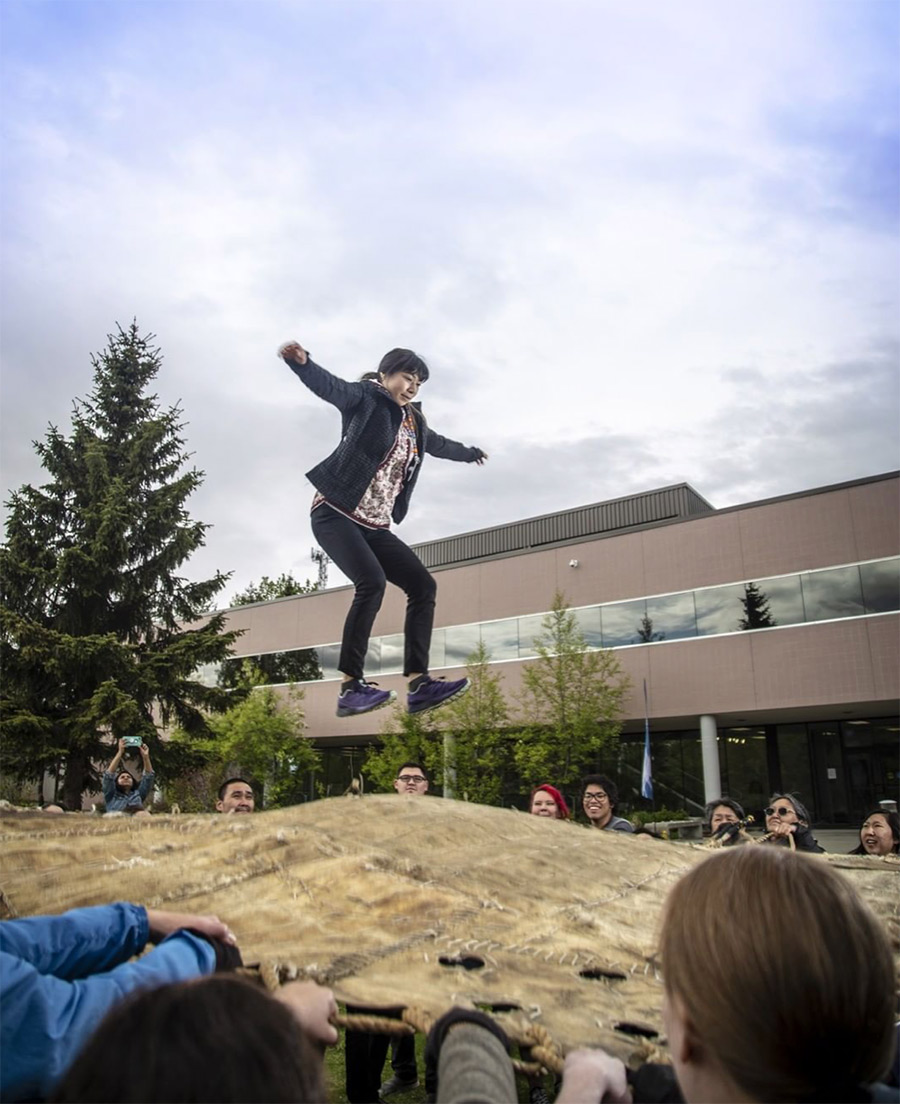


Davidson is well respected in Alaska and has served in high-profile positions including commissioner of the Alaska Department of Health and Social Services and Lieutenant Governor under Governor Bill Walker. Most recently she was named as Interim President for the Alaska Native Tribal Health Consortium.
With her background in health care, as an attorney, and as an educator, she was well-suited to lead the university as COVID-19 was changing nearly every aspect of our daily lives. Shortly before Davidson took on her new role as president, to mitigate the spread of illness the university moved many of their classes online.
“Before I came to APU I spent 20 years in health care and health care administration. What I learned is when we provide culturally relevant and appropriate care, and in cultural context of the people we serve, we have much better health outcomes. I believe the same is possible in education,” said Valerie.
Valerie knows from her own experiences how much of an impact culturally relevant education can have in Alaska communities. “I’ve seen firsthand what training does for our communities,” she said. “Whether it’s community health or behavioral health aid training, or dental health aid training. It makes a difference having our own people trained to provide services for our people.”
At an early age, he was encouraged by his mother to earn his degree outside of Alaska. Eventually, he graduated from Williamsport Dickinson Seminary in Pennsylvania (now Lycoming College) and later graduated in 1930 from Syracuse University being ordained as an Elder in the Methodist Church and the first Alaska Native minister.
Fortunately, as a result of better health care practices since the 1960s, Alaska’s mortality rates concerning TB declined over the next several decades. Living to see both the Spanish Flu and TB epidemics, Peter’s hope was to address Alaska Native health care, economic opportunities, and education.
His solution was to establish Alaska’s first liberal arts college. In 1957, after a successful campaign of fundraising led by Peter, Alaska Methodist University was founded, and classes began a couple of years later, in 1960. The university would be renamed Alaska Pacific University in 1978.
Circumstances have changed and infectious diseases like COVID-19 are not unfamiliar to Alaska. Currently, Alaska Native communities are adapting to address COVID-19. This time around, there is good news.
According to data from the Centers for Disease Control and Prevention, Alaska has the highest per capita COVID-19 vaccination rates of any state in the country. Alaska Chief Medical Officer Dr. Ann Zink said in an Indian Country Today news article, “Alaska’s success in vaccination is because of the tribal success in vaccination.”
This comes from decades of cooperation among tribal health organizations and leadership. Often using dog-sled teams, bush planes, and snow machines, vaccines are being distributed to villages. This success is perhaps in part built from the foundations of leadership like Gould.
COVID-19 has impacted Alaska and changed how we go about our daily lives, including our education systems. Speaking of the founding of APU, Valerie said, “Postsecondary education doesn’t always meet the needs of Alaska. This is one of the reasons APU exists. APU was necessary. It is important to offer an education that respects our state’s Indigenous population, cultures, and traditions. We offer an education that is available in Alaska that trains our people to succeed in their careers.”

ANTHC contacted the American Indian Higher Education Consortium with that goal in mind. Additionally, late in 2016, a major change took place with 14 of APU’s trustees stepping down.
“Our focus at APU is more than just meeting a federal 50 percent designation. We have our own criteria,” said Valerie. “At APU, 84 percent of our board of trustee members are American Indian and Alaska Native. As we are teaching a writing class or a business class we want to provide Indigenous scholars and Indigenous business perspectives in our class offerings.”
APU has made strides to meet the diverse needs of Alaska Native communities from small villages to urban centers. With only 500 students, APU can be an easier transition for students while earning a postsecondary degree.
“I know when I was a student, both as an undergrad and a graduate student, the expectation was that Native students need to adapt our way of thinking to meet somebody else’s definition of what success is,” said Valerie. “I think if we are doing that, I think we are doing it wrong. That is not what we expect at APU.”
When faced with challenges like the COVID-19 pandemic we can look to history to see the impact Alaska Native leadership has had in the past. We can see how Alaska Native leaders, communities, and people are working to meet these challenges today.
While at the moment, adapting to a life-changing pandemic like COVID-19 is difficult, there is some comfort in acknowledging that Alaska Native people have faced many challenges. Looking to the future perhaps we can also find comfort knowing that our leaders, communities, and people are more than capable to move us beyond any difficult time.